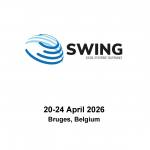Inter-Ethnic Relations in Times of Wars: the Case of Georgian/Abkhaz and Armenian/Azerbaijani Relations

The workshop Inter-ethnic relations in times of wars: the case of Georgian/Abkhaz and Armenian/Azerbaijani relations is a joint initiative of the Eureast Platform, Knowledge Centre ‘Ukraine-plus’, University of Ghent (Ghent), Université Libre de Bruxelles (ULB) and UNU-CRIS (Bruges).
When: 2 April 2024
Time: 14:00 - 15:30
Venue: UNU-CRIS, Potterierei 72, 8000 Brugge, Belgium
Abstract:
Abkhaz, Armenians, Azerbaijani and Georgians have long co-existed in a region framed as the South Caucasus. These different ethnic categories result from socio-political constructions that are rarely questioned. Playing a pivotal role in the wars that have unfolded in the region, ethnic categorization is particularly central in shaping current antagonizations. Since the late 1980s, the coexistence of differently ethnicised populations in the South Caucasus has been deeply challenged by a series of conflicts, wars and pogroms. Since 24 February 2022, the co-existence of Abkhaz, Armenians, Azerbaijani and Georgians has been unfolding against the backdrop of Russia’s full-scale invasion of Ukraine, bringing an additional layer of complexity. Moreover, following the dissolution of Nagorno-Karabakh as a de facto political entity and Azerbaijan's complete annexation of the territories in September 2023, significant shifts in regional geopolitics have unfolded. These changes present a complex landscape, fraught with challenges but also offering potential reimaginations for coexistence. Thus, this workshop aims to shed light on this daily coexistence, sometimes replicating (geo)political struggles, sometimes overcoming them.
Programme:
Welcome and introduction: Gaëlle Le Pavic (Ghent University - CESSMIR; United Nations University – CRIS) (5min)
Presentation of the Eureast Platform Knowledge Centre ‘Ukraine-plus’: Dmytro Panchuk (Ghent University) (5min)
Women's Agency and Everyday Peace Practices in Armenian-Azerbaijani Coexistence: Sevijn Samadzade (Ghent University; United Nations University – CRIS) (30min)
Whose ethnicity matters? Intermarriage and the gendered dynamics of ethnic (un)mixing in the Georgian-Abkhaz conflict: Andrea Peinhopf (Northumbria University Newcastle) (30min)
Discussion with the audience (20min)
Moderation: Gaëlle Le Pavic
About the speakers:
Sevinj Samadzade is a feminist researcher and an activist within the field of Feminist International Relations and security, with a particular focus on post-Soviet geopolitics, social work and movements in the South Caucasus region. She has broadly focused on gender, peace and security nexus within the South Caucasus region with a decade-long experience of working in various civil-society groups in Azerbaijan and Georgia. She has been engaged in processes related to dealing with the past and researching an alternative history and daily politics of the Nagorno-Karabakh conflict, in addition to implementing gender and peace education in the wider region. She is currently pursuing her PhD at Ghent University by examining how and when social work practices reproduce powers and discourses of geopolitics. Within her research, she delves into providing a deeper understanding of the interaction between global and local scales in the context of social welfare provisions for women in Georgia.
Andrea Peinhopf is an ethnographer and interdisciplinary peace and conflict scholar with a regional specialisation in the post-Soviet Caucasus. Her fieldwork-intensive research explores the long-lasting and complex effects of war, mass displacement and international isolation on people’s identities in the context of unresolved conflict and contested statehood. Parts of her work have been published in Ethnopolitics, Nationalities Papers, the Palgrave Encyclopedia of Peace and Conflict Studies and The Global Encyclopaedia of Informality. Andrea currently works as a Lecturer in International Relations and Politics at Northumbria University in Newcastle. Before joining Northumbria University, she was an ESRC Postdoctoral Fellow at the University of York’s Politics Department. She holds a PhD in Sociology and Anthropology from the UCL School of Slavonic and East European Studies.
Please click here to register.
If you can only participate online via Zoom, please also register here
Upcoming Events
Similar Events
No events found.


